Mahathir, the world’s oldest prime minister, appears to have lost his magic touch in running the country, which is burdened with record RM1 trillion debts inherited from the previous corrupt government. Initially praised – even worshipped – for stunningly defeated protégé-turn-nemesis Najib Razak, Mahathir administration has increasingly attracted criticisms.
Whether Mr. Mahathir realized it or not, he has been pressing more wrong buttons that he should have. If 2018 was the year of excessive politicking where he recruited opposition politicians whom he had condemned as corrupt, 2019 is definitely the year the premier embraces racial and religious extremism in his attempt to boost his image as the hero of Malays and Muslims.
Unlike his first stint as 4th Prime Minister of Malaysia (from 1981 to 2003), the premier certainly looks clueless on how to rejuvenate the country’s economythis time. Despite having created a special ministry – Ministry of Economic Affairs – and entrusted the portfolio to Azmin Ali, his blue-eyed boy has done practically nothing to boost domestic economy so far.
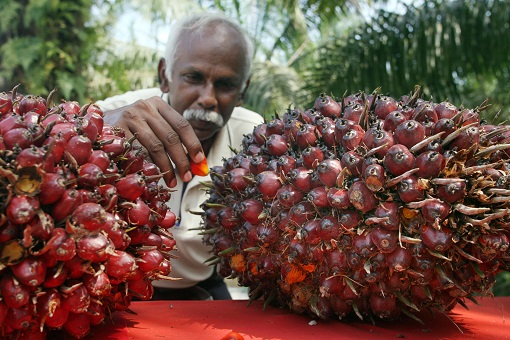
That’s fine. Under the previous Abdullah Badawi administration, the country was on auto-pilot too. But things turned for the worse when Mahathir, now the 7th prime minister, decided it would be a jolly good idea to interfere in the internal affairs of foreign countries. The 94-year-old man thought he’s still as famous and admired as in the 1980s and could stick his nose anywhere he likes.
In an exclusive report, Reuters reports that India is now considering restricting imports of palm oil from Malaysia. But that’s not all. New Delhi is also looking at limiting imports of “other products” from Kuala Lumpur. So, not only India wants to reduce purchases of palm oil, but also to slash imports of other goods produced or made in Malaysia – clearly a double whammy.
Two months ago, a notification dated August 26 was sighted indicating India’s Commerce Ministry had recommended an increase in import duty – from 45% to 50% – on refined palm from Malaysia. At that point of time, the effective tax imposed on Malaysia was only 45% because the country enjoyed a special 5%less import tax due to the special relationship between both countries.
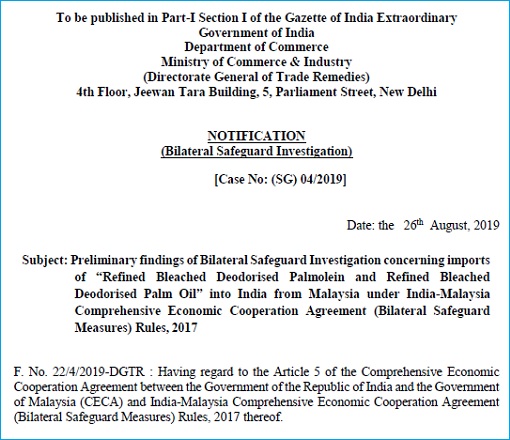
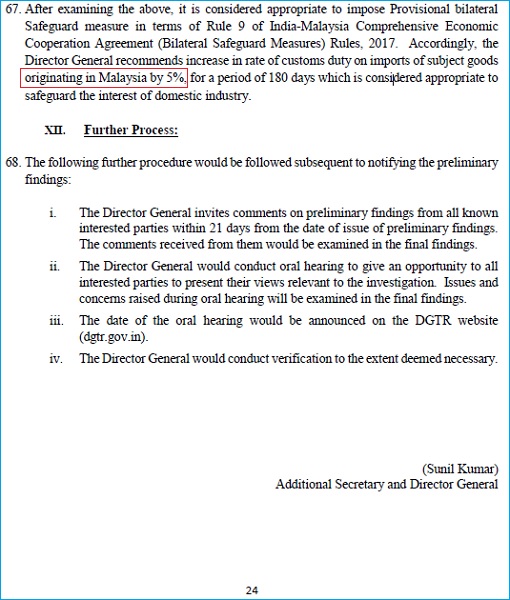
In essence, while rival Indonesia was subjected to 50% tax on refined palm oil, Malaysia’s tariff was only 45% (when it should be 50%), thanks to a Comprehensive Economic Cooperation Agreement (CECA) signed between both nations. Upset with the special discount enjoyed by Malaysia, Indonesians demanded for a fair and equal tariff.
Indonesia had been asking India, the world’s biggest importer of edible oils, to cut its tariff on palm oil to match the levy faced by rival producer Malaysia. In return, Jakarta was willing to open up its market access for raw sugar from India (Indonesia imports raw sugar from Thailand and Australia). For years, Jakarta has been lobbying for the abolishment of the unfair preferential treatment.
New Delhi, however, had refused to entertain Indonesian’s requests in order to safeguard its special relationship with Kuala Lumpur – until Mahathir stubbornly and arrogantly chose to protect and harbour Zakir Naik, a controversial Indian Islamic preacher wanted by the Indian government for spreading hate speech, laundering money, and funding terrorism.

But it was PM Mahathir’s insult about India’s democracy and judicial system that has rubbed the 1.32-billion population nation the wrong way. Despite boastfully telling all and sundry that his government was committed to the rule of law, the 94-year-old premier arrogantly said he would not deport the radical and extreme preacher – even if India asked for it.
Emboldened by VIP treatment, Zakir then ventured into racial politics, saying that the Malaysian Chinese aren’t born in the country so they, as the “old guests”, must go back to China first before he (the “new guest”) can be asked to leave. Mahathir admitted that Zakir had crossed the red line. Yet, he defiantly said the preacher could not be repatriated to India because his life could be at risk.
PM Mahathir’s remarks, whether was done deliberately or recklessly, was as good as saying that Narendra Modi was a brutal leader and his government was as ruthless and murderous as North Korean Kim Jong-Un. The Malaysian prime minister’s refusal to extradite the hate preacher back to India is also a sign of disrespect to an extradition treaty signed in January 2010 by both nations.
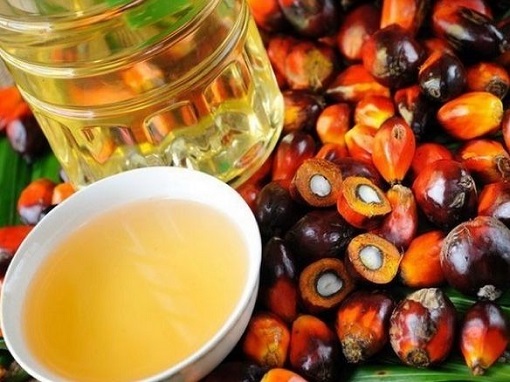
In September, a month after the plan to raise tariff was unveiled, India officially slapped Malaysia’s refined palm oil with an additional 5% tax under the pretext of curbing imports and boosting local refining. Without the duty advantage, Indonesia is expected to regain market share again after Malaysia surpassed Indonesia as the biggest supplier to India in the first half of 2019.
In the same month Malaysia lost its preferential tariff, Mahathir Mohamad met his Indian counterpart Narendra Modi in Russia. Malaysian Foreign Minister Saifuddin Abdullah admitted that Zakir Naik was mentioned by Modi but did not elaborate. However, the Times of India quoted Indian foreign secretary Vijay Gokhale as saying that PM Modi had raised the issue of Zakir’s extradition.
Surprisingly, PM Mahathir insisted that Indian PM Modi did not make any extradition request for the controversial preacher Zakir Naik during their recent meeting in Russia. Later, Indian Minister of External Affairs, S Jaishankar, rubbished Mahathir’s claim that India was no longer interested in extraditing their citizen – suggesting that the Malaysian leader was a liar.

When India imposed 5% additional tax on Malaysian refined palm in September, they did not specifically mention Zakir Naik as the reason for the punishment because New Delhi wanted to maintain its status as “the bigger man”. But when Mahathir slammed India for its actions in Kashmir last month at the United Nations, it became the last straw that broke the camel’s back.
Obviously India was angered after Mahathir accused India of having “invaded and occupied” Jammu and Kashmir, and even lectured New Delhi to work with Pakistan to resolve the issue. According to sources, Modi government wants to send a strong signal of its displeasure to Malaysian government over its interference in the internal affairs of India.
Thanks to Mahathir’s big mouth, social media users in India had accused Mahathir of publicly siding with Pakistan against India in the ongoing dispute over the region, hence triggered calls for a massive boycott of Malaysian tourism, product and services, including airlines. As a result, the#BoycottMalaysia hashtag has been trending on Twitter platform.
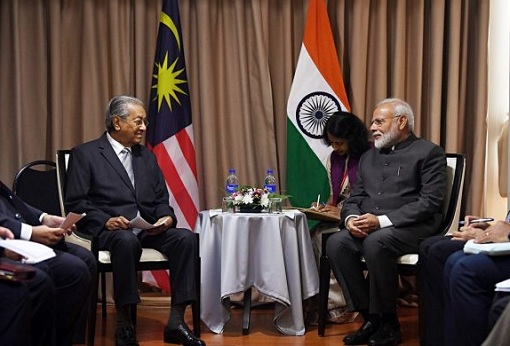
India and Pakistan have fought over Kashmir since their independence from British rule in 1947. After several rounds of war, today, both New Delhi and Islamabad claim Kashmir ownership in full, but control only parts of it – territories recognised internationally as “Indian-administered Kashmir” and “Pakistan-administered Kashmir”.
In February, a bombing in the Indian-controlled Kashmir killed 40 Indian troops. India responded with an airstrike inside Pakistan, blaming a Pakistani group for the attack. On August 5, Indian lawmakers passed a bill that dissolved a constitutional provision, known as Article 370, which gave the people of Kashmir exclusive rights and a separate constitution.
Narendra Modi’s Hindu nationalist BJP (Bharatiya Janata Party) has long opposed Article 370 and had repeatedly called for its abolishment. The attack on Indian troops indirectly provided an opportunity for the BJP to strip Kashmir of its seven-decade-long privileged status. Telephone networks and the internet were cut off in the region in the days before the presidential order was announced.

Pakistan condemned the unexpected development, calling it illegal and even downgraded diplomatic ties with India and suspended all trade. However, India argued that Article 370 was an internal matter as it did not interfere with the boundaries of the territory. In short, New Delhi said its decision has not changed the “Line of Control”, or the boundaries of the region, which was agreed by Pakistan.
Make no mistake. Mr. Mahathir interfered in the internal affairs of India specifically because Jammu and Kashmir are more than 60% Muslim. But he was wrong to say India has invaded the territories because technically, they are part of India. India administers Jammu, the Kashmir Valley, Ladakh, and the Siachen Glacier. On the other hand, Pakistan administers Azad Kashmir and Gilgit-Baltistan.
Mahathir should realize that Kashmir initially decides to remain independent, choosing not to become a part of either Pakistan or India. After militants from Pakistan invade, however, the Maharaja of Kashmir signs a letter acceding to India. It was because Pakistan does not recognize the letter as a legal document that multiple wars have been sparked since 1947.
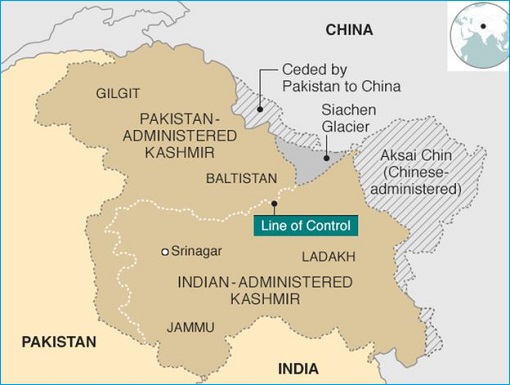
But both India and Pakistan already agreed in 1949 to the establishment of the “Line of Control”, which separates Indian and Pakistani-controlled parts of Kashmir, the same way Korean Demilitarized Zone divides the Korea into North and South. Jammu and Kashmir were neither independent nations, nor under the administration of Pakistan.
So how could Mahathir accuse India of invading Kashmir? Does he expect New Delhi to do nothing when Islamic militants start uprisings in Indian-controlled Kashmir every now and then? Thanks to Article 370, Jammu and Kashmir were given significant autonomy, including its own constitution, a separate flag, and independence over all matters except foreign affairs, defence and communications.
The India’s parliament votes to approve the status change for the state of Jammu and Kashmir means New Delhi’s authority over the region has changed from an “autonomous state” to an “union territory”. Like it or not, the revocation of the autonomy status is the internal affairs of India. Mahathir should take care of his own backyard instead of poking India the wrong way.
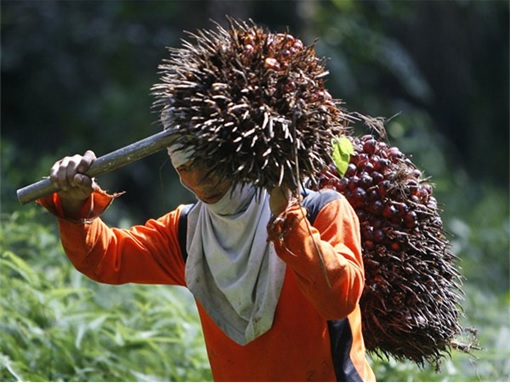
The sources who leaked the plan also reveal that India, the world’s biggest importer of edible oils, is planning to substitute Malaysian palm oil with supplies of edible oils from countries like Indonesia, Argentina and Ukraine. Based on data of the Malaysian Palm Oil Board, in the first nine months of 2019 India was the biggest buyer of Malaysian palm oil, buying 3.9 million tonnes.
Palm oil accounts for nearly two-thirds of India’s total edible oil imports. India buys more than 9 million tonnes of palm oil every year, primarily from Indonesia and Malaysia. If India makes good on its promise to punish Mahathir, Malaysia will definitely be in deep trouble as it would be quite difficult to find new buyers to absorb the 3.9 million tonnes of palm oil.
To add salt into injury, France’s constitutional court has just ruled on October 11 to uphold a law excluding palm oil from its biofuel scheme, something which will further pressure Malaysian palm oil prices and demand. The legislation will remove palm oil from a list of permitted biofuels from January 2020 and eliminate related tax advantages.

Mahathir said he had not received “anything official” from India. Was he so naive as to think New Delhi would call and seek his advice about the latest plan? It would be too late when it becomes official. If he believes India cannot live without Malaysia’s palm oil, he better think again. Indonesia is more than eager to sell more palm oil to India, and snatch the market share away from Malaysia.
Alternatively, India could also increase imports of soya bean oil from Argentina and sunflower oil from Ukraine to offset any drop in Malaysian palm oil shipments. Perhaps Mahathir hadn’t realised that higher Indian imports had helped Malaysia reduce palm oil stockpiles in 2019. But thanks to Mahathir’s toxic big mouth, the trouble didn’t end with palm oil only.
Other Malaysian products potentially to be hit include electrical and electronic, crude petroleum and chemical. According to India’s trade ministry data, Malaysia’s exports to India stood at US$10.8 billion in the 2018/19 fiscal, while imports from New Delhi totalled US$6.4 billion. That means Malaysia enjoyed a trade surplus of US$4.4 billion and cannot afford a trade war with India.
– Finance Twitter



No comments:
Post a Comment
Note: Only a member of this blog may post a comment.